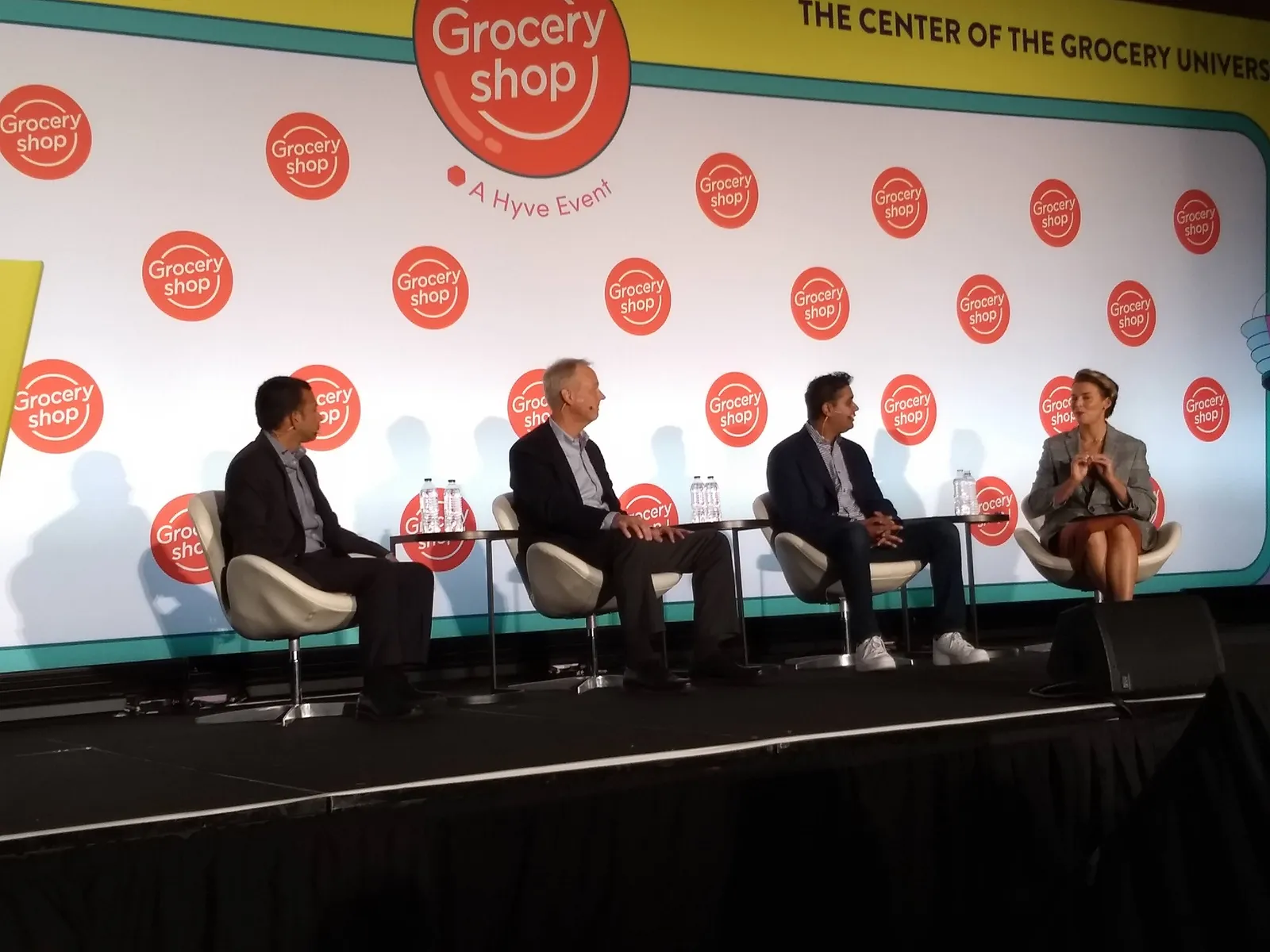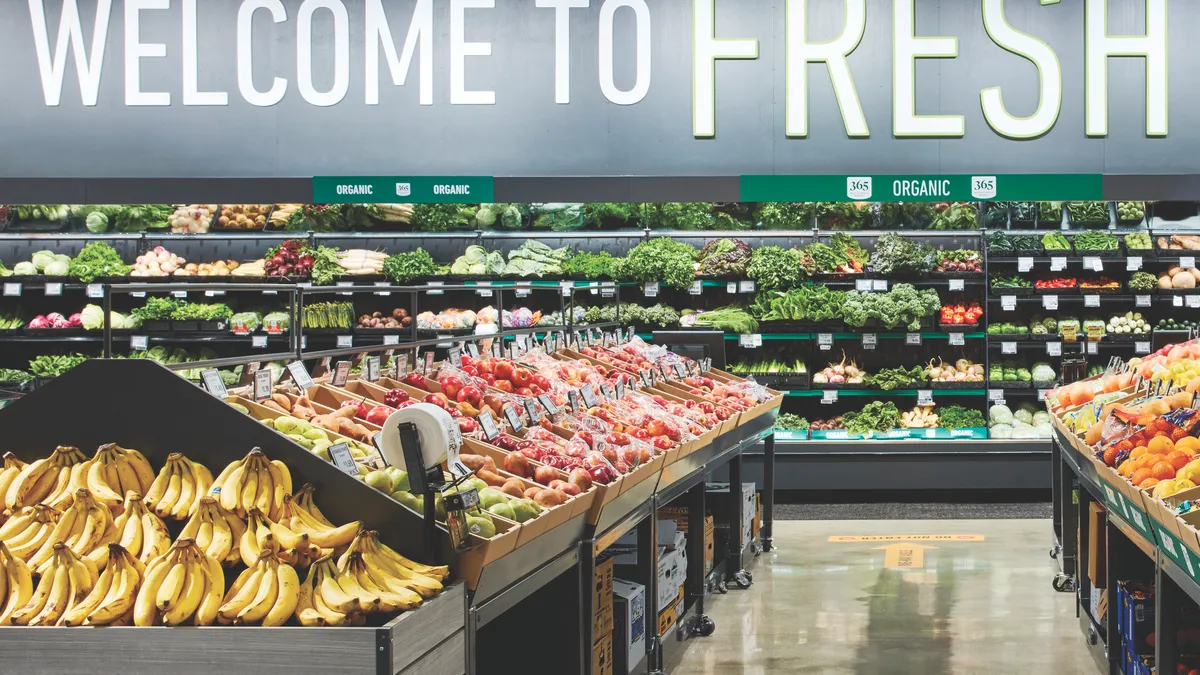LAS VEGAS — Two years after Amazon debuted its first Amazon Fresh supermarket, the e-commerce giant faces an uphill climb in its effort to stand out against established operators of brick-and-mortar grocery stores, Wall Street analysts said Tuesday during a panel session at Groceryshop.
The young chain remains far behind other supermarket chains on a number of fronts, raising questions about Amazon’s ability to gain traction against food retailers like Kroger, Albertsons, Target and Walmart, all of which have distinct strengths that make them tough for a new entrant to compete with, said Robby Ohmes, a managing director at Bank of America.
“When you map out the U.S. between those four [retailers], I don't know where Amazon Fresh thinks they're going to fit,” Ohmes said.
The Amazon Fresh chain, which began with a single store in Woodland Hills, California, that opened in August 2020, has grown to 44 stores in eight states and Washington, D.C.
A key obstacle for Amazon is that it is trying to build a base of physical grocery stores even as its chief rivals have been investing heavily to bolster their positions, from strengthening private brands to emphasizing fresh products, analysts said. Meanwhile, Amazon has struggled to distinguish the Amazon Fresh brand in a crowded market and struggled to keep products on its shelves, said Rupesh Parikh, a senior equity research analyst at Oppenheimer & Co.
In addition, Amazon Fresh continues to be overshadowed by deep discounters as the chain looks to put down roots, Parikh said.
“It's almost in between an Aldi and a Lidl … a smaller format in a bigger box [and] you can't get your entire box of goods” because Amazon Fresh stores have a limited assortment, he said. “There's no unique differentiation towards what they're selling, so it's a very middle-of-the-road concept.”

Ohmes noted that Amazon is in the unenviable position of trying to build Amazon Fresh in the face of strong competition from multiple well-established retailers at once. He pointed to Walmart’s especially large number of locations and Kroger’s approach to clustering stores as distinct advantages for those retailers. He added that Albertsons’ heavy emphasis on its fresh assortment helps it stand out.
Ohmes also pointed to Target’s private label strategy as a reason why it, too, will make it hard for Amazon to gain ground as it works to build out its chain of Fresh stores.
Target has “really good own brands, and they've got this amazing sourcing organization for the hardlines and apparel side of the business. And then now they’ve become really good at grocery,” Ohmes said.
Kaumil Gajrawala, a managing director at Credit Suisse, pointed out that local retailers also enjoy advantages because they have ties to their communities that Amazon will be in a tough position to match.
“I think [they] want to compete where they can't compete, which is local,” Gajrawala advised smaller grocers that might face the arrival of an Amazon Fresh store. “Just be the best version of yourself and try to do the things that they can’t do. And that… starts with really dominating local.”













